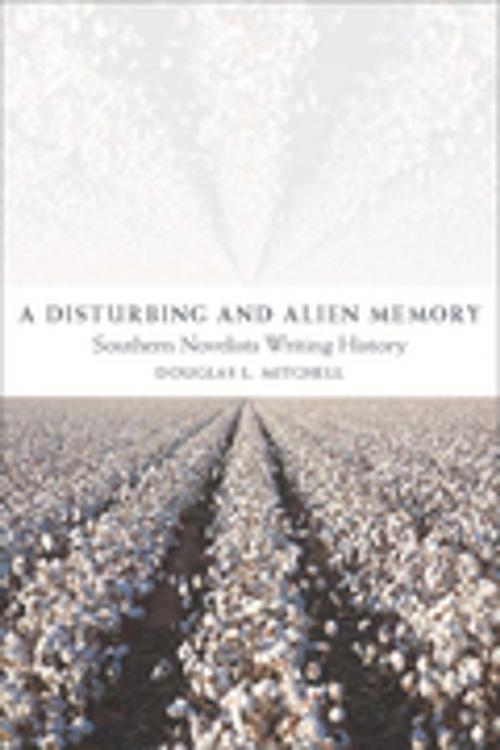A Disturbing and Alien Memory
Southern Novelists Writing History
Fiction & Literature, Literary Theory & Criticism, American| Author: | Douglas L. Mitchell | ISBN: | 9780807154977 |
| Publisher: | LSU Press | Publication: | December 1, 2008 |
| Imprint: | LSU Press | Language: | English |
| Author: | Douglas L. Mitchell |
| ISBN: | 9780807154977 |
| Publisher: | LSU Press |
| Publication: | December 1, 2008 |
| Imprint: | LSU Press |
| Language: | English |
In the late nineteenth century, as the study of history shifted from the domain of letters into the social sciences, novelists in the North and the West generally turned away from writing history. Many southern novelists and poets, however, continued to undertake historical writing as an extension of their art form. What made southern literary figures differ from their northern and western counterparts? In A Disturbing and Alien Memory, Douglas L. Mitchell addresses this intriguing question by tracing a line of southern writers from the early nineteenth century to the mid-twentieth, finding that an obsessive need to defend the South and the oft-noted "rage to explain" drove some creative writers to continue to make forays into history and biography in an effort to enter a more public sphere where they could more decisively influence interpretations of the past. In the Romantic history of the nineteenth century, Mitchell explains, men of letters saw themselves as keepers of memory whose renderings of the past could help shape the future of the nation. He explores the historical writing of William Gilmore Simms to trace the failure of Romantic nationalism in the growing split between North and South, then turns to Thomas Nelson Page's effort to resurrect the South as a "spiritual nation" with a redeemed history after the Civil War. Mitchell juxtaposes their work with that of William Wells Brown, the pioneering African American historian and novelist who used the authority of history to write blacks into the American story. Moving into the twentieth century, Mitchell analyzes the historical component of the Southern Agrarian project, focusing on the tension between modernist aesthetics and polemical aims in Allen Tate's Civil War biographies. He then traces a path toward a viable historical vision, Robert Penn Warren's recovery of a tragic understanding, and the creation of a compelling historical art in the work of Shelby Foote. Throughout, Mitchell examines the peculiar dilemma of southern writers, the changing nature of history and its relation to the realm of letters, and the question of public authority, shedding light on several neglected texts in the process -- including Simms's The Sack and Destruction of Columbia, S.C., Brown's The Negro in the American Rebellion, Tate's Jefferson Davis, and Warren's John Brown. Offering a new perspective on a perennial debate in southern letters, A Disturbing and Alien Memory provides a critical framework for a neglected genre in the southern literary canon.
In the late nineteenth century, as the study of history shifted from the domain of letters into the social sciences, novelists in the North and the West generally turned away from writing history. Many southern novelists and poets, however, continued to undertake historical writing as an extension of their art form. What made southern literary figures differ from their northern and western counterparts? In A Disturbing and Alien Memory, Douglas L. Mitchell addresses this intriguing question by tracing a line of southern writers from the early nineteenth century to the mid-twentieth, finding that an obsessive need to defend the South and the oft-noted "rage to explain" drove some creative writers to continue to make forays into history and biography in an effort to enter a more public sphere where they could more decisively influence interpretations of the past. In the Romantic history of the nineteenth century, Mitchell explains, men of letters saw themselves as keepers of memory whose renderings of the past could help shape the future of the nation. He explores the historical writing of William Gilmore Simms to trace the failure of Romantic nationalism in the growing split between North and South, then turns to Thomas Nelson Page's effort to resurrect the South as a "spiritual nation" with a redeemed history after the Civil War. Mitchell juxtaposes their work with that of William Wells Brown, the pioneering African American historian and novelist who used the authority of history to write blacks into the American story. Moving into the twentieth century, Mitchell analyzes the historical component of the Southern Agrarian project, focusing on the tension between modernist aesthetics and polemical aims in Allen Tate's Civil War biographies. He then traces a path toward a viable historical vision, Robert Penn Warren's recovery of a tragic understanding, and the creation of a compelling historical art in the work of Shelby Foote. Throughout, Mitchell examines the peculiar dilemma of southern writers, the changing nature of history and its relation to the realm of letters, and the question of public authority, shedding light on several neglected texts in the process -- including Simms's The Sack and Destruction of Columbia, S.C., Brown's The Negro in the American Rebellion, Tate's Jefferson Davis, and Warren's John Brown. Offering a new perspective on a perennial debate in southern letters, A Disturbing and Alien Memory provides a critical framework for a neglected genre in the southern literary canon.















